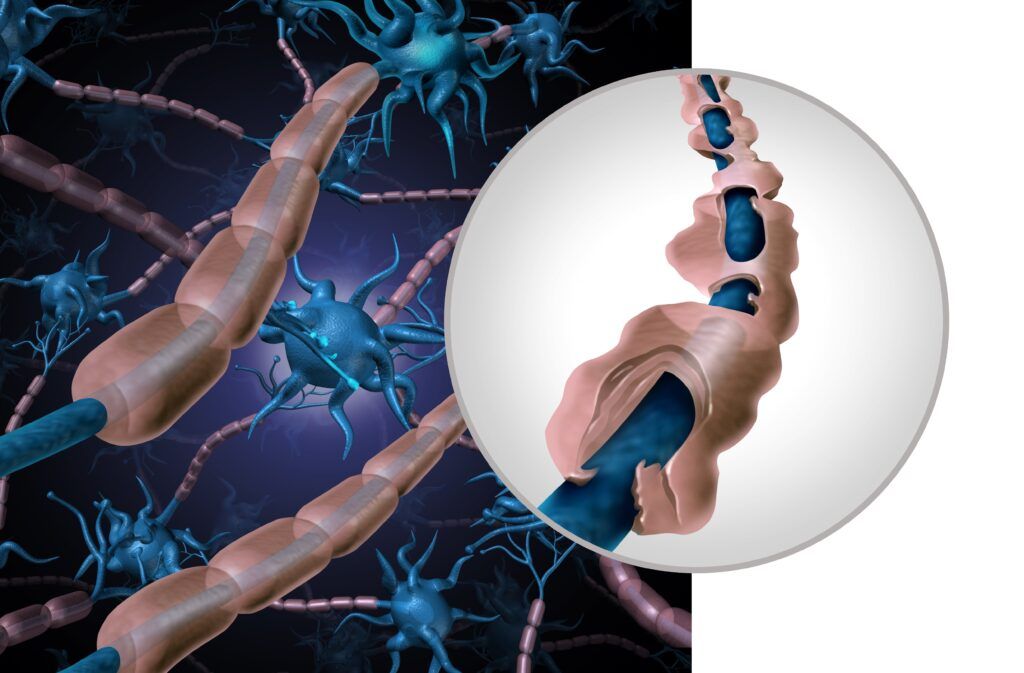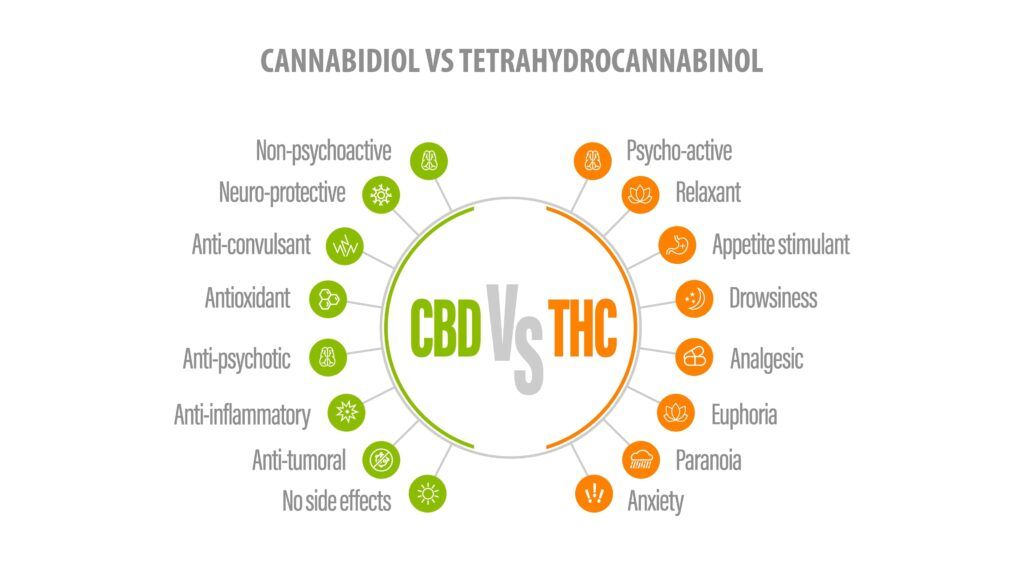Multiple Sclerosis (MS) is a debilitating condition that affects millions of people worldwide. While there is currently no cure for MS, many treatments are available to help alleviate its symptoms. One of the most promising treatments for MS is medical marijuana. Medical marijuana has been shown to provide numerous benefits for MS patients, including pain relief, improved mobility, and reduced inflammation. In this blog, we will explore the science behind medical marijuana and its potential benefits for MS patients. We will also discuss the potential risks and side effects of medical marijuana use. By the end of this blog, you will have a better understanding of the potential benefits and risks of using medical marijuana to treat MS.
Understanding Multiple Sclerosis (MS)
Before looking at the benefits of medical marijuana for multiple sclerosis treatment, it is important to understand this disease and how it affects the body. Multiple sclerosis (MS) is a chronic and progressive autoimmune disorder that affects the central nervous system (CNS), which includes the brain, spinal cord, and optic nerves. In MS, the immune system attacks the myelin, which is the protective covering around nerve fibers in the CNS. As a result, the nerve fibers are damaged, leading to a disruption of the communication between the brain and the rest of the body.

The symptoms of MS can vary widely from person to person and may include:
- Muscle weakness or stiffness
- Difficulty with balance and coordination
- Fatigue
- Tingling or numbness in the limbs
- Vision problems
- Bladder or bowel dysfunction
- Cognitive impairment
- Emotional changes
MS can also cause relapses or flare-ups of symptoms followed by periods of remission. The severity and frequency of these relapses can vary, and some people with MS may experience a gradual worsening of symptoms over time.
The exact cause of MS is not fully understood, but it is believed to be a combination of genetic and environmental factors. MS affects women more frequently than men and is usually diagnosed between the ages of 20 and 40.
The impact of MS on the body can be significant, leading to disability and a decreased quality of life. However, with proper treatment and management, many MS patients can lead full and productive lives. In fact, the National Multiple Sclerosis Society supports the use of medical marijuana as a way to manage MS symptoms.
The Science Behind Medical Marijuana and Multiple Sclerosis
The science behind medical marijuana and multiple sclerosis (MS) lies in the interaction between the active compounds in marijuana and the body’s endocannabinoid system. The endocannabinoid system is a complex system of receptors and neurotransmitters that are found throughout the body and play a crucial role in regulating various physiological functions such as pain, inflammation, and motor control.

The two main active compounds in marijuana are tetrahydrocannabinol (THC) and cannabidiol (CBD). THC is responsible for the psychoactive effects of marijuana, while CBD does not produce psychoactive effects but has anti-inflammatory and analgesic properties.
Studies have shown that medical marijuana can help alleviate many of the symptoms of MS, including pain, spasticity, and muscle stiffness. This is because the cannabinoids in marijuana can bind to the cannabinoid receptors in the endocannabinoid system and modulate the function of the nervous system. For example, THC can activate the CB1 receptors, which are found in the brain and spinal cord, leading to pain relief and a reduction in spasticity. CBD, on the other hand, can activate the CB2 receptors, which are found in the immune system, leading to a reduction in inflammation.
In addition to the direct effects on the endocannabinoid system, medical marijuana may also have indirect effects on MS symptoms. For example, some studies have suggested that marijuana can improve sleep, reduce anxiety, and enhance mood, which may help alleviate some of the emotional and cognitive symptoms of MS.
Overall, the interaction between the active compounds in medical marijuana and the endocannabinoid system may help alleviate many of the symptoms of MS and improve the quality of life for MS patients. However, more research is needed to fully understand the mechanisms of action and the potential risks and benefits of medical marijuana use in MS patients.
Types of Medical Marijuana for Multiple Sclerosis
Nabiximols, dronabinol, and nabilone are three medications that contain synthetic versions of cannabinoids found in the cannabis plant. They are used to treat multiple sclerosis (MS) by reducing symptoms such as spasticity and neuropathic pain.
- Nabiximols: Also known as Sativex, nabiximols is an oral spray that contains a combination of THC and CBD. It is used to treat spasticity and neuropathic pain in MS patients who have not responded adequately to other treatments. Nabiximols is sprayed into the mouth, typically under the tongue, and the dosage is adjusted based on the patient’s response and tolerance.
- Dronabinol: Dronabinol is a synthetic form of THC that is approved by the US Food and Drug Administration (FDA) for the treatment of nausea and vomiting associated with chemotherapy and for the treatment of anorexia associated with AIDS. It is sometimes used off-label to treat spasticity and neuropathic pain in MS patients. Dronabinol is taken orally in capsule form, typically two to three times a day.
- Nabilone: Nabilone is a synthetic cannabinoid that is similar in structure to THC. It is used to treat nausea and vomiting associated with chemotherapy that has not responded to other treatments. It is sometimes used off-label to treat spasticity and neuropathic pain in MS patients. Nabilone is taken orally in capsule form, typically once or twice a day.
While these medications have been shown to be effective in reducing symptoms in MS patients, they may also have potential risks and side effects. It’s essential to consult with a healthcare professional before using any of these medications, especially if you have a history of substance abuse, psychiatric disorders, or other medical conditions. Additionally, it’s important to follow the dosing instructions carefully and report any side effects to your healthcare provider.
Benefits of Medical Marijuana for Multiple Sclerosis
Pain Relief
Pain is a common symptom of MS, and it can be challenging to manage. Medical marijuana can help alleviate pain in MS patients by reducing inflammation and activating the body’s natural pain-relieving systems. Studies have shown that medical marijuana can reduce MS-related pain significantly. In addition, using medical marijuana for pain relief has advantages over traditional painkillers, such as a lower risk of addiction and fewer side effects.
Improved Mobility
MS can cause mobility issues, making it difficult for patients to move around and perform everyday activities. Medical marijuana can help improve mobility in MS patients by reducing spasticity, muscle stiffness, and tremors. Some patients have reported an improvement in balance, coordination, and walking ability. However, these results are self-reported and can not always be measured by tests administered by a physician. Nevertheless, medical marijuana’s effects on mobility may provide advantages over traditional mobility aids, such as wheelchairs and crutches.
Reduced Inflammation
MS is an autoimmune disorder that causes inflammation in the nervous system. Medical marijuana has anti-inflammatory properties that can reduce MS-related inflammation. By reducing inflammation, medical marijuana can help alleviate other MS symptoms, such as pain and spasticity. Compared to traditional anti-inflammatory medications, medical marijuana may have fewer side effects and risks.
Here is a table comparing the therapeutic and adverse effects of nabiximols, dronabinol, and nabilone in regards to multiple sclerosis treatment:
| Medication | Therapeutic Effects | Adverse Effects |
| Nabiximols | Reduces spasticity and neuropathic pain in MS patients, improves sleep quality, and may improve bladder function | Dizziness, fatigue, nausea, dry mouth, and vertigo |
| Dronabinol | Effective in reducing neuropathic pain in MS patients, and improves sleep quality | Dizziness, dry mouth, and weariness |
| Nabilone | Reduces spasticity and neuropathic pain in MS patients. Also improves bladder dysfunction | Dizziness, dry mouth, weariness, and lack of energy |
Again, it’s important to note that these medications may have additional therapeutic and adverse effects beyond those listed in the table, and that the specific effects and risks may vary depending on the patient’s individual health status and other factors. It’s essential to consult with a healthcare professional before using any of these medications.
In Conclusion
In conclusion, medical marijuana has shown promising results in reducing symptoms associated with multiple sclerosis, including spasticity, neuropathic pain, and sleep disturbances. The cannabinoids found in medical marijuana can interact with the body’s endocannabinoid system to produce therapeutic effects, and medications like nabiximols, dronabinol, and nabilone have been developed to provide a more standardized and reliable treatment option for MS patients. While there may be some potential risks and side effects associated with these medications, they offer a viable alternative for patients who have not responded adequately to other treatments or who prefer to avoid the side effects of traditional pharmaceuticals. Further research is needed to better understand the long-term effects and potential benefits of medical marijuana for MS treatment, but the current evidence suggests that it is a valuable tool for managing symptoms and improving quality of life for MS patients. For more information about how medical marijuana can help you, schedule a consultation with one of our board-certified medical marijuana doctors at Premier Neurology in Stuart, FL.

Dr. Kashouty, a diplomate of the American Board of Psychiatry and Neurology (ABPN), practices general neurology with fellowship trained specialization in clinical neurophysiology. Dr. Kashouty finds the form and function of the nerves and muscles the most interesting part of neurology, which is what led him to specialize in neurophysiology with more emphasis on neuromuscular conditions. He treats all neurological diseases, but his main focus is to treat and manage headaches, movement disorders and neuromuscular diseases.




